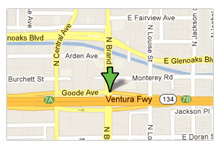This fall, the federal government changed its visa rules to include Taiwan in a list of 37 other countries that enjoy waived visa requirements. Now, Taiwanese families who split their time between the island and the United States can do so more often and with less expense. The move also prompts a discussion on how individuals with families in countries for which visas are still required can obtain a visa for their loved ones.
Taiwan visitors no longer need visas to visit U.S.
The federal government's decision to waive the visa requirement for Taiwanese visitors should not only help families see each other more frequently, it should also stimulate the tourist industry on the West Coast and other areas of the United States.
Before the government waived the visa requirement, potential Taiwanese visitors had to visit the U.S. Consulate in Taipei to assure officials that they would not stay in the United States indefinitely. If they were able to do so, they paid $164 to receive a visa. This process had to be completed every time someone from Taiwan wished to visit the U.S. to visit family, shop or go on vacation.
Now, Taiwanese will be able to stay in the U.S. for up to 90 days without having to obtain a visa. All they need to do is pay a nominal fee and fill out an online travel authorization form. To qualify for a visa waiver, countries must pose a low security threat to the United States and not be a major source of illegal immigration.
Procedure for those seeking family visas
The U.S. Citizenship and Immigration Services (USCIS) allow individuals living in the United States to petition the government to provide visas for their immediate family living abroad. The process is different for U.S. citizens, permanent residents, and refugees and asylees.
U.S. citizens with foreign-born family or fiancés who wish to move to the U.S. can petition the government to provide visas or green cards for these loved ones. U.S. citizens can ask the government to provide green cards for spouses, children, parents or siblings. They may also petition for a fiancé visa for a fiancé and his or her dependent children or for a K-3 or K-4 nonimmigrant visa for a spouse or children under age 21.
To apply for a green card for family members, U.S. citizens must file Form I-130 (Petition for Alien Relative), provide proof of U.S. citizenship, show documentation of their relationship with the loved ones, such as a marriage license or birth certificate, and provide proof of any name change, if applicable.
Permanent legal residents of the United States may also apply for their foreign-born family members to come to the U.S. as permanent residents, including spouses, unmarried children under the age of 21 and unmarried sons or daughters. Permanent legal residents must also file Form I-130, prove that they are legal, permanent residents, provide documentation of their relationship with the family member and provide proof of a name change, if applicable.
Lastly, refugees who have entered the U.S. in the past two years or individuals granted asylum by the U.S. within the past two years may also petition to have family members join them in the United States. Spouses and children who were unmarried and under age 21 when the refugee entered the country or the asylee was granted asylum may be eligible for refugee or asylee status. Refugees may file Form I-730 (Refugee/Asylee Relative Petition) for free.
To get help applying for a family visa, it is advisable to contact an experienced immigration attorney.


